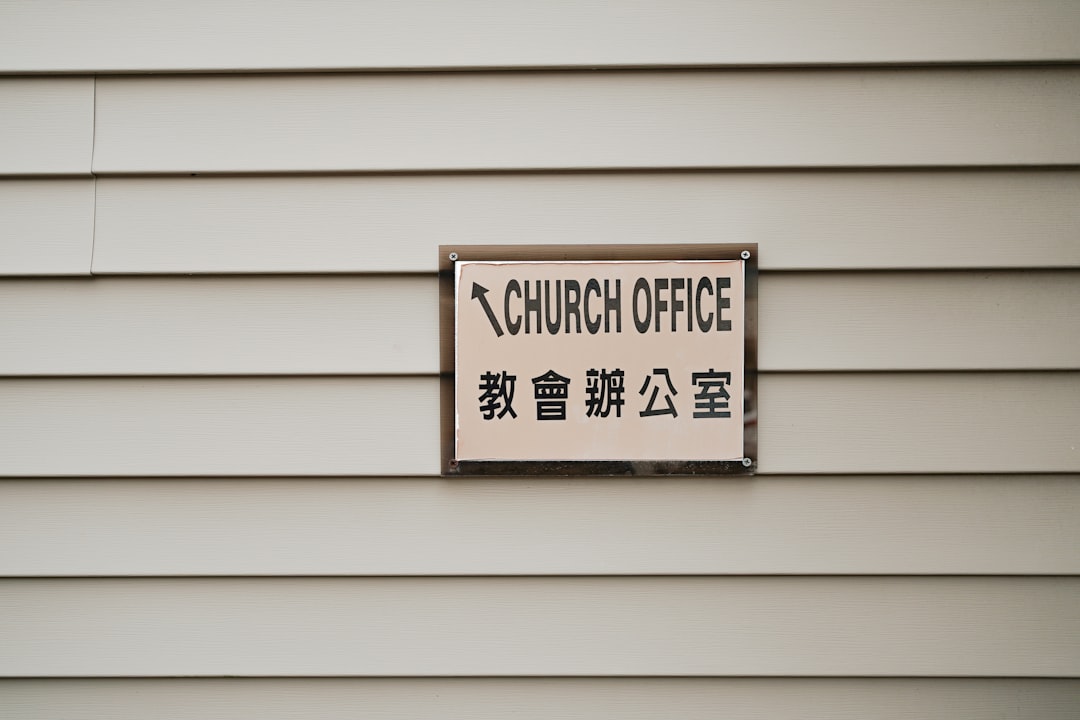The phenomenon of absentee ownership in New York City has become increasingly prevalent in recent years, reflecting broader trends in urban real estate. Absentee owners are individuals or entities that own properties but do not reside in them, often living in different states or even countries. This trend can be attributed to various factors, including the allure of New York City’s real estate market, which offers significant investment opportunities.
Many investors view properties in the city as a means to generate passive income, while others may purchase homes as vacation residences or future retirement options. The appeal of owning a piece of one of the world’s most iconic cities is undeniable, yet it comes with its own set of challenges. The motivations behind absentee ownership are diverse.
Some owners may have inherited properties or purchased them during a time of economic prosperity, while others may be drawn by the potential for appreciation in property value. However, the complexities of managing a property from afar can lead to a disconnect between owners and their investments. This disconnect can manifest in various ways, from neglecting maintenance to failing to address tenant concerns promptly.
As the number of absentee owners continues to rise, understanding the implications of this trend becomes crucial for both property owners and the broader community.
Key Takeaways
- Absentee ownership is a prevalent phenomenon in NYC, with owners facing various challenges in managing their properties from a distance.
- Absentee owners in NYC encounter legal and regulatory hurdles that can complicate property management and maintenance.
- Property maintenance and management pose significant challenges for absentee owners, requiring effective remote communication and oversight.
- Tenant relations and communication issues can arise for absentee owners, necessitating proactive and clear communication strategies.
- Financial and taxation challenges, as well as security and safety concerns, are key considerations for absentee owners in NYC.
Legal and Regulatory Hurdles for Absentee Owners
Navigating the legal landscape as an absentee owner in New York City can be a daunting task. The city is known for its intricate regulations governing property ownership, tenant rights, and building codes. Absentee owners often find themselves grappling with a myriad of legal requirements that can vary significantly depending on the type of property they own.
For instance, residential landlords must comply with local rent stabilization laws, which can be particularly challenging for those who are not physically present to manage their properties. Moreover, absentee owners may face additional hurdles when it comes to understanding their responsibilities under New York City’s housing regulations. Failure to comply with these laws can result in hefty fines and legal disputes with tenants.
The complexities of eviction processes, tenant screening, and lease agreements can overwhelm those who are not familiar with local laws. As such, absentee owners must invest time and resources into understanding their legal obligations or risk facing significant penalties.
Property Maintenance and Management Challenges

One of the most pressing challenges for absentee owners is ensuring proper property maintenance and management. Without regular oversight, properties can quickly fall into disrepair, leading to decreased property values and tenant dissatisfaction. Absentee owners often rely on property management companies to handle day-to-day operations, but selecting a trustworthy and competent management team can be a daunting task.
The quality of property management can vary widely, and absentee owners may find themselves at the mercy of their chosen management company’s practices. Additionally, maintenance issues can arise unexpectedly, requiring immediate attention.
This lack of immediate response can lead to tenant frustration and potential lease violations. Consequently, absentee owners must establish clear communication channels with their property management teams to ensure that maintenance issues are addressed promptly and effectively.
Tenant Relations and Communication Issues
| Issue | Frequency | Resolution Time |
|---|---|---|
| Noisy Neighbors | High | 2-3 days |
| Maintenance Requests | Medium | 1-2 weeks |
| Communication Breakdown | Low | 1 day |
Effective communication is vital for maintaining positive tenant relations, yet absentee owners often struggle in this area. The physical distance between owners and tenants can create barriers to open dialogue, leading to misunderstandings and dissatisfaction. Tenants may feel neglected if they perceive that their landlord is unresponsive or unavailable to address their concerns.
This disconnect can result in high turnover rates and difficulty retaining reliable tenants. To mitigate these issues, absentee owners must prioritize establishing strong lines of communication with their tenants. Utilizing technology can be an effective way to bridge the gap; for example, implementing online portals for maintenance requests or regular updates can foster a sense of connection.
Additionally, absentee owners should consider scheduling periodic visits to their properties to meet tenants in person and address any concerns directly. By taking proactive steps to enhance communication, absentee owners can cultivate positive relationships with their tenants and create a more harmonious living environment.
Financial and Taxation Challenges for Absentee Owners
Absentee ownership also presents unique financial and taxation challenges that require careful consideration. Property owners must navigate complex tax regulations that vary by state and locality. In New York City, property taxes can be particularly high, and absentee owners may find themselves facing unexpected financial burdens if they do not stay informed about changes in tax laws or assessments.
Furthermore, absentee owners must also account for the costs associated with property management services, maintenance, and potential vacancies. These expenses can quickly add up, impacting overall profitability. To mitigate financial risks, absentee owners should conduct thorough financial planning and budgeting before investing in properties.
Engaging with financial advisors who specialize in real estate can provide valuable insights into managing cash flow and maximizing returns on investment.
Security and Safety Concerns for Absentee-Owned Properties

Security is a significant concern for absentee-owned properties, as vacant homes are often more susceptible to vandalism and break-ins.
Additionally, safety concerns extend beyond criminal activity; properties that are not regularly maintained may pose hazards to tenants or visitors.
To address these security concerns, absentee owners should consider implementing measures such as installing security systems or hiring local security services to monitor their properties. Regular inspections by property management teams can also help identify vulnerabilities and ensure that properties remain secure. By taking proactive steps to enhance security, absentee owners can protect their investments and provide peace of mind for both themselves and their tenants.
Market Volatility and Investment Risks
The real estate market in New York City is known for its volatility, which poses significant risks for absentee owners. Economic fluctuations, changes in demand, and shifts in local policies can all impact property values and rental income. Absentee owners who are not actively engaged in the market may find it challenging to make informed decisions about their investments.
To navigate these risks effectively, absentee owners should stay informed about market trends and economic indicators that could affect their properties. Engaging with local real estate professionals can provide valuable insights into market dynamics and help absentee owners make strategic decisions regarding buying, selling, or holding onto their investments. By remaining vigilant and adaptable in the face of market volatility, absentee owners can better protect their financial interests.
Remote Decision Making and Property Upkeep
Making decisions about property upkeep from a distance presents unique challenges for absentee owners. Without being physically present to assess conditions firsthand, it can be difficult to determine the urgency of repairs or improvements needed on the property. This lack of direct oversight may lead to delays in addressing critical issues that could affect tenant satisfaction or property value.
To facilitate effective remote decision-making, absentee owners should establish clear protocols with their property management teams regarding maintenance priorities and reporting procedures. Utilizing technology such as video calls or virtual tours can also provide absentee owners with a clearer understanding of their property’s condition without needing to be on-site. By leveraging available resources and maintaining open lines of communication with management teams, absentee owners can make informed decisions that support the long-term health of their investments.
Accessing Local Resources and Services from Afar
Absentee owners often face challenges when it comes to accessing local resources and services necessary for effective property management. From finding reliable contractors for repairs to navigating local regulations, being physically distant from the property can complicate these tasks significantly. Many absentee owners may feel overwhelmed by the prospect of managing these logistical challenges without being present.
To overcome these obstacles, absentee owners should consider building a network of trusted local contacts who can assist with various aspects of property management. This network might include real estate agents, contractors, maintenance personnel, and legal advisors familiar with local regulations. By cultivating relationships with these professionals, absentee owners can streamline access to essential services and ensure that their properties are well-maintained even from afar.
Long-Distance Property Inspections and Evaluations
Conducting regular inspections is crucial for maintaining the integrity of any property; however, long-distance ownership complicates this process significantly. Absentee owners may struggle to perform routine evaluations or respond promptly to emerging issues without being physically present at the property site. This lack of oversight can lead to escalating problems that could have been easily addressed through timely inspections.
To facilitate long-distance inspections effectively, absentee owners should consider employing technology solutions such as remote monitoring systems or hiring local inspectors who can provide detailed reports on property conditions. Utilizing drones for aerial inspections or video conferencing tools for virtual walkthroughs can also enhance an owner’s ability to assess their property’s status without needing to travel frequently. By embracing innovative solutions for inspections and evaluations, absentee owners can maintain a closer connection to their properties while minimizing travel-related challenges.
Strategies for Overcoming Absentee Owner Challenges in NYC
Despite the myriad challenges faced by absentee owners in New York City, there are several strategies they can employ to navigate these obstacles successfully. First and foremost is the importance of establishing a reliable support system comprised of local professionals who understand the intricacies of the New York real estate market. By building relationships with experienced property managers, contractors, and legal advisors, absentee owners can ensure that they have access to essential resources when needed.
Additionally, leveraging technology is crucial for effective remote management. Utilizing online platforms for communication with tenants and property managers allows for timely responses to inquiries or issues that arise. Regularly scheduled virtual meetings or check-ins can help maintain transparency between all parties involved while fostering a sense of community among tenants.
Ultimately, successful absentee ownership in New York City requires a proactive approach that combines diligent planning with effective communication strategies. By staying informed about market trends, legal obligations, and maintenance needs while fostering strong relationships with local professionals and tenants alike, absentee owners can navigate the complexities of ownership from afar while maximizing their investment potential in one of the world’s most dynamic cities.
In recent years, the issue of absentee owners in New York City has become a significant topic of discussion, particularly in the context of real estate and urban development. Absentee ownership can lead to various challenges, including neglected properties and reduced community engagement. For those interested in exploring this topic further, a related article can be found on MyGeoQuest, which delves into the implications of absentee ownership and its impact on local communities. You can read more about it by visiting this link.
WATCH THIS! The Real Cost of NYC Living: Your Wallet, Sanity, and Subway Survival Skills
FAQs
What is an absentee owner in NYC?
An absentee owner in NYC refers to a property owner who does not reside on the premises or in the local area. They may live in a different city or even a different country.
How common are absentee owners in NYC?
Absentee owners are fairly common in NYC, especially in the real estate market where investors may purchase properties as an investment without intending to live in them.
What are the implications of having absentee owners in NYC?
Having absentee owners in NYC can impact the local community in various ways. It can lead to neglect of the property, lack of community involvement, and potential issues with property management.
How are absentee owners regulated in NYC?
NYC has regulations in place to address issues related to absentee owners, such as property maintenance and management. The city may have specific requirements for property upkeep and may impose penalties for non-compliance.
What are some challenges associated with absentee owners in NYC?
Challenges associated with absentee owners in NYC may include difficulties in communication, lack of oversight on property maintenance, and potential impact on the local housing market and community development.
